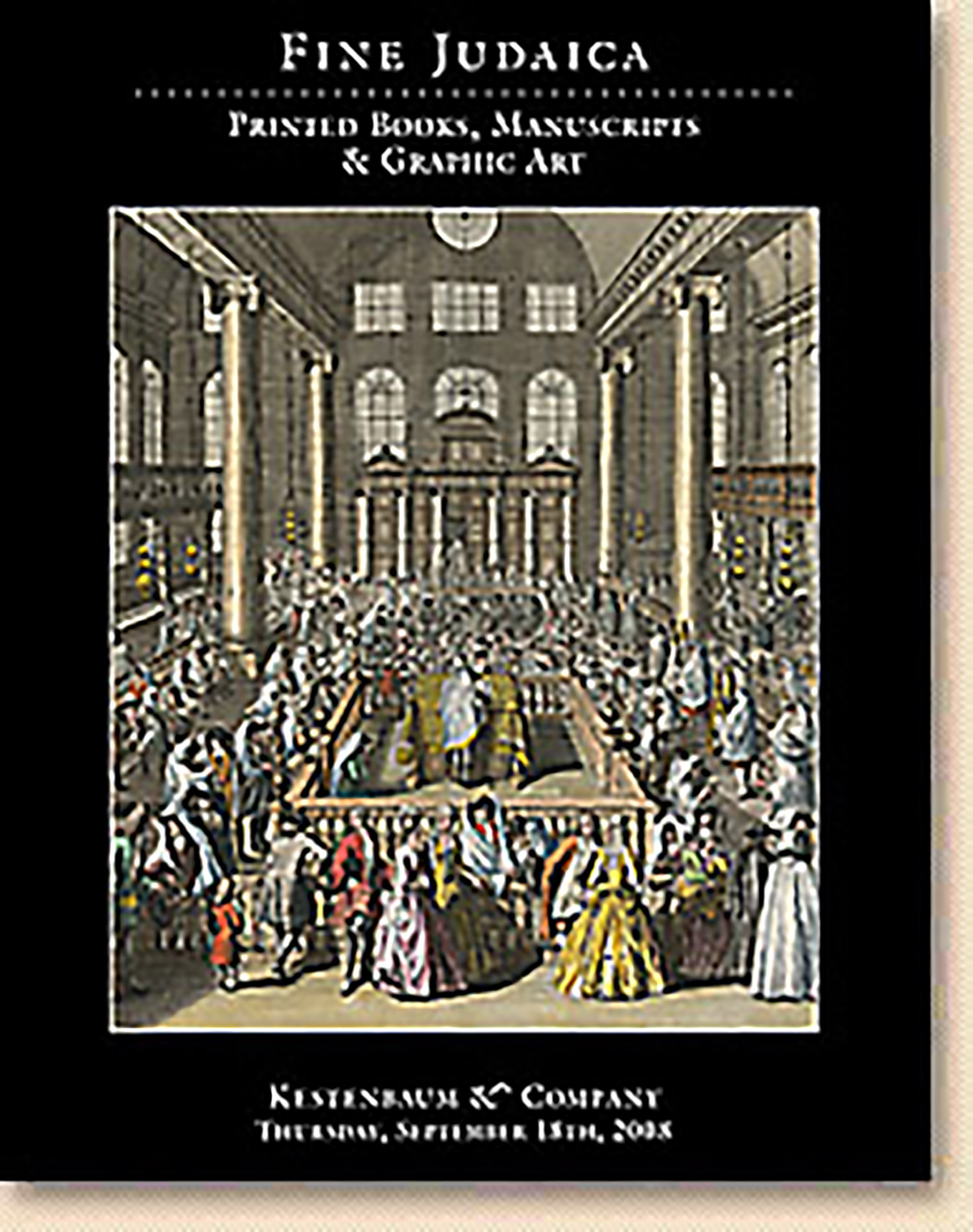(ANGLO-JUDAICA).

AUCTION 41 |
Thursday, September 18th,
2008 at 1:00
Fine Judaica: Printed Books, Manuscripts, & Graphic Art
Lot 41
(ANGLO-JUDAICA).
London: T.N. for Thomas Heath 1656
Est: $4,000 - $6,000
In 1655, the Amsterdam rabbi and mystic Menasseh Ben Israel arrived in England intent on persuading Lord Protector Oliver Cromwell to readmit the Jews to England after an absence of over three and a half centuries. On 31st October, Menasseh presented his pamphlet, Humble Address, to the Council of State. In the introduction, he expresed his belief that the dispersal of the Jews to the four corners of the Earth was necessary for the Final Redemption to occur, in fulfillment of the prophecies in Deuteronomy 28:64 and Daniel 12:7. Conspicuously, the Jews were yet absent from Angle Terre (Heb. “ketzeh ha-aretz”, literally, the end of the earth).
Menasseh’s proposal met with a considerable backlash. Englishmen opposed to the reentry let loose a torrent of verbal protest. Indicative of this reaction, the present pamphlet argues against Rabbi Menasseh Ben Israel’s proposal. The author, William Hughes of Gray’s Inn, laments the fact that “the Rabbi appears to be utterly ignorant of our Histories (though a learned man).” The reader is familarized with the many supposed wrongdoings of the Jews during their sojourn in England, including several alleged sacrifices of Christian children, the most infamous being, of course, that of Hugh of Lincoln in 1255 (pp. 18-19). He sums up Anglo-Jewish history: “Thus admitted by William the Conqueror, about the year 1070, they were expelled in the year 1290, being here some 220 years (longer by five or six than their ancestors were in Egypt) during which time we may easily see the English Nation was as in bondage” (p. 31). (In an interesting aside, the author disputes Judge Cook’s earlier assertion that the Jews were not banished but left voluntarily - see pp. 26-30).
The pamphleteer proceeds to systematically demolish Rabbi Menasseh ben Israel’s arguments. He is especially cynical regarding Menasseh’s assertion that the imminent Redemption rides on the Jews’ readmission to England: “I cannot but wonder at the Rabbi. It’s believed that the time of their redemption is near (saith he) and that they must first be scatterd throughout the world. What then? Therefore, if this be true, they must first have a seat also in England. Why, they had a seat here once before for the space of above 220 years, and must they needs come again, or else their dispersion (as to this place) cannnot be accomplished?” (pp. 32-33).
Oliver Cromwell, who initially was in favor of the readmission, evidently miscalculated the degree of opposition and ultimately dissolved the conference that was to debate the question.
In July of 1656, the Council of State considered the petition of the London Marranos to have their own burial ground and to hold religious services undisturbed. The relevant pages were subsequently torn out of the minute book. Thus, the readmission of the Jews to England became de facto though never de jure.
See T.M. Endelman, The Jews of Britain 1656 to 2000 (2002), pp. 20-27 ; EJ, Vol. VI, cols. 752-3
